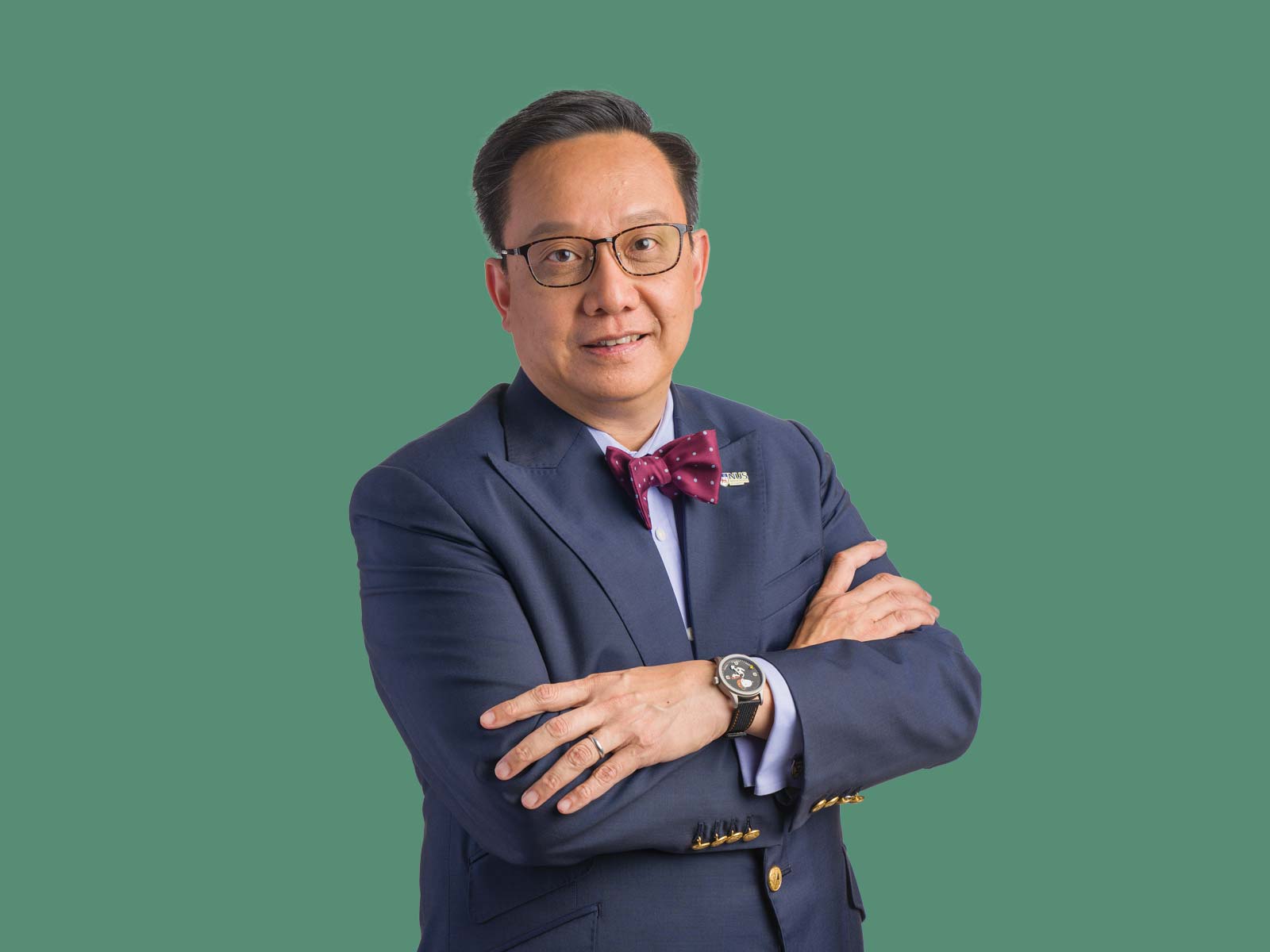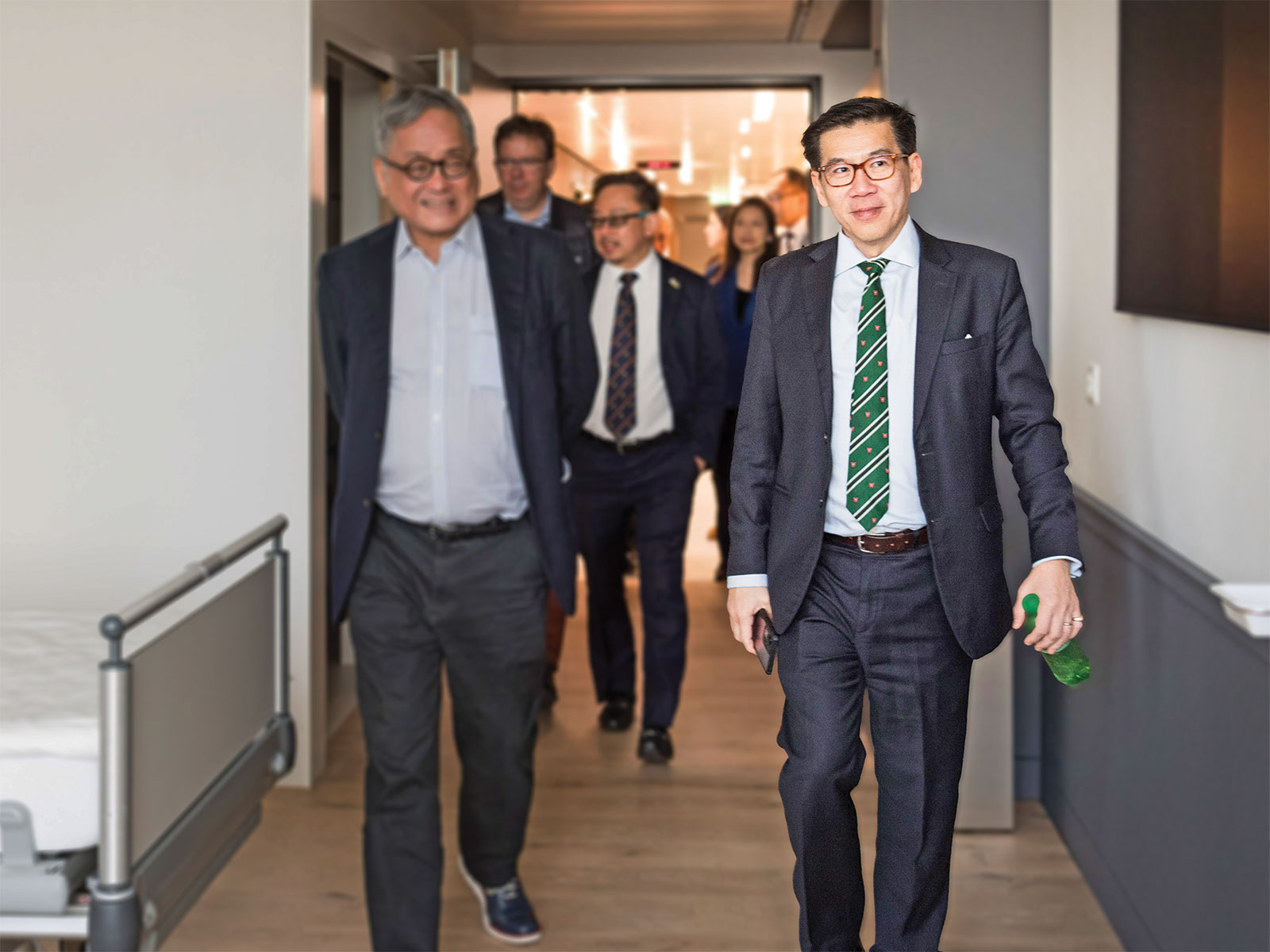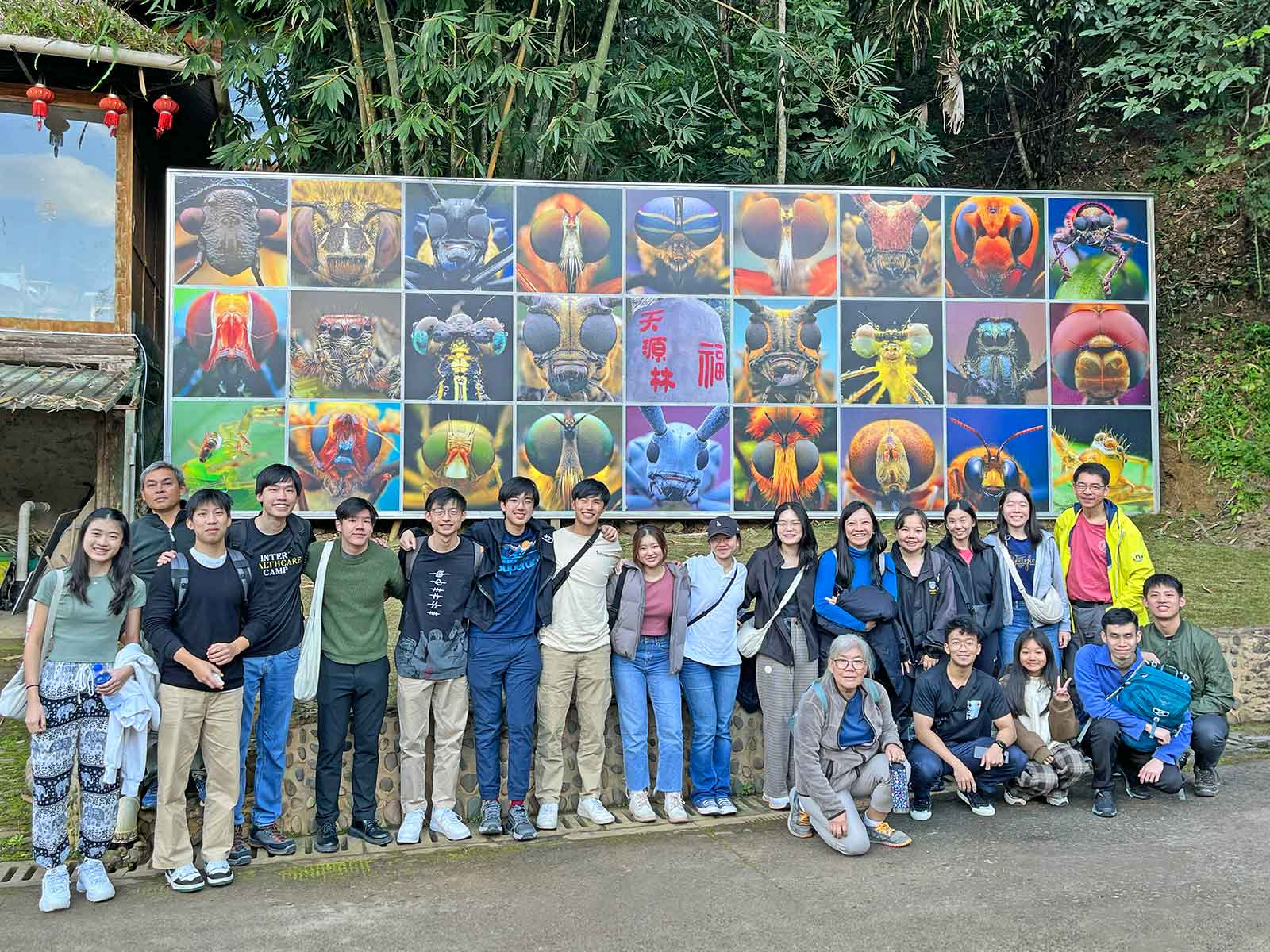
Dean’s Message
May 2024
DEAN’S MESSAGE

While conveying Lunar New Year greetings to Singaporeans this year, the Prime Minister encouraged young couples to “add a little dragon” to their families. That gentle, good-humoured call for more babies underlined the stark reality of Singapore’s declining fertility and low birth rates, a dilemma also faced by many other countries like Japan, South Korea and China. Singapore’s resident total fertility rate hit an all-time low of 0.97 in 2023, dipping below the previous record of 1.04 in 2022.
A research initiative here at NUS Medicine is taking a tangential approach to this critical national issue by focusing on one half of the poser—women’s reproductive healthspan. Based at the Yong Loo Lin School of Medicine, National University of Singapore (NUS Medicine), the Bia-Echo Asia Centre for Reproductive Longevity and Equality (ACRLE) seeks to improve the ovarian health of women around the world and extend women’s reproductive healthspan through advocacy, education and research. By working with experts from various fields, ACRLE is committed to advancing women’s health through the pursuit of scientific breakthroughs and insights in the field of reproductive longevity.
Its second international conference in April drew researchers, social scientists, public health experts, policymakers, clinicians, nurses, students and advocates in women’s health, reproductive biology, reproductive rights and equality. Participants focused on an interdisciplinary approach to understand the art and science of reproductive longevity and equality through four key strategic tracks.
A shrinking population is not the only problem that Singapore faces. We are also ageing rapidly. It is a double whammy of a Gordian knot that requires critical, out-of-the-box thinking and truly novel approaches to unravel. While a lot of current preventive health guidelines are based on gender and chronological age, we want to refine current diagnostics and biomarkers to better risk stratify individuals. Work by our scientists from the Health Longevity Translational Research Programme aims to build research in geroscience that includes preclinical studies and translational approaches to slow the effects of ageing. This includes trials to test the efficacy of novel healthy longevity interventions.
But that is not all. Climate change has already brought about unprecedented, wild and extreme fluctuations in global weather and Singapore will not be spared searing heat waves, drought as well as torrential rainfall and heavy floods. To mitigate against these very severe conditions, the Singapore government’s Green Plan has ambitious and concrete targets to achieve long-term, net zero carbon emissions by 2050. The healthcare sector, long identified as a key contributor to global warming, has a critical role to play alongside all economic and industrial sectors to decarbonise.
The newly established Centre for Sustainable Medicine (CoSM) at NUS Medicine was set up to chart the way forward towards sustainable medicine, health systems, and healthcare delivery. Having gained valuable insights and perspectives from Commissioners of the Lancet Commission for Sustainable Healthcare, and the Editor-In-Chief of Lancet, Dr Richard Horton, who joined CoSM’s recent public plenary, I look forward to CoSM leading the charge to accelerate the future of net zero healthcare in Asia and across the world.
Tackling declining birth rates, low fertility issues, boosting human longevity, and ensuring Singapore continues to thrive in the midst of severe global climate change require pan-disciplinary, imaginative and even courageous approaches, given the complex interplay among medical, social, political and environmental factors. True love will find a way, certainly, but a helping hand from science can help Singaporean little dragons live longer, healthier, in a greener world.

More from this issue



